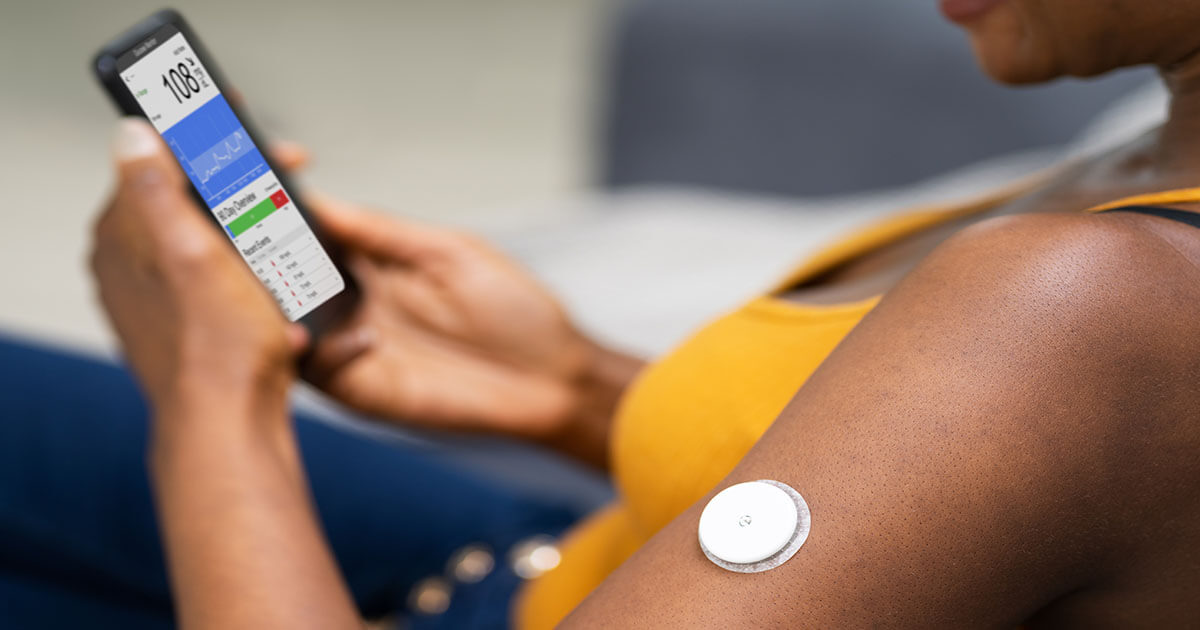The waiting area
My old clinic was great for little children: it had slides and games and was a fun place to wait. However, it felt a little “childish” for older children. In contrast, my new clinic had a separate clinic and waiting area for children aged 11 years and up. This meant that the 11-year-olds who felt they were at an intermediate age were not grouped together with little children. It was better to see people of my own age in the waiting area and it gave me the impression that I was growing up, becoming more mature and entering a period where I would take more control of my diabetes care.
In the waiting area, I was also asked to upload my own technical data (e.g. uploading my pump data to Diasend) myself, instead of having it done for me. I had previously had experiences where staff took my insulin pump from me in order to upload the data, and I remember feeling a little anxious, because my pump is vital medical equipment and even something I regard as part of myself. Moreover, I felt patronised as it was assumed that I would not be able to upload the data myself – in actuality, the member of staff had to come back and ask me how to do it because he didn’t know!
The trust the new clinic placed on me was also illustrated by the use of a pre-appointment form, which we filled out in the waiting area and which had a box for any of my queries. This was important to me because it gave me time to formulate any questions I had for my consultant or DSN, and it meant that my questions were not forgotten because they were written down. It also made me feel that my questions were relevant because they were put on the same standing as my diabetes data: just as important to my team as my basal rates and bolus ratios.
Interactions with healthcare professionals
When I met my consultant, Dr Billy White, he made a point of addressing me directly, rather than through my mother. This made me feel that my opinion was just as valid as my mum’s, and it empowered me specifically because he often gave precedence to my response over hers. He wanted to know what I felt about my current issues even if my understanding wasn’t quite as good as my mum’s.
Billy also asked me to call him by his first name. The idea of speaking on a first-name basis may seem small, but it created a sense of an equal partnership in the attempt to understand my specific healthcare needs. This is really important to the patient; however, sadly, the relationship often feels quite unequal, with the consultant merely dispensing information without acknowledging how much the patient knows.
Billy further encouraged me to take an active part in the discussion by beginning our conversations with a ten-minute session about non-diabetes topics, such as school, exams and holiday plans, and my life in general. This made me feel accepted and was even helpful, because he often made relevant suggestions to help with problems in my life that were stressing me out and negatively affecting my self-care. He always reminded me that sometimes my diabetes management would be worse because of other issues going on in my life and that this was not necessarily my fault. He would also write down notes with personal details about me, so that there was continuity. If there were interesting things going on in my life, he was able to remind himself and ask me about them next time. This was a really nice touch, because I know what it’s like to be forgotten about over and over again by a busy clinician.
I was asked whether I wanted to be referred to a dietitian, psychologist or DSN rather than having them all in the room. In my previous paediatric clinic, all of those people were present at once, which I found intimidating and unhelpful because I could not speak to any particular person without feeling that the others were listening.
This was especially problematic with the psychologist because it is very difficult for a child to say they want psychological help when three other adults are listening, particularly in cases where they don’t really want to talk to their parents about what’s bothering them or they are unsure whether the problem is big enough to warrant attention.
Billy allowed me to disagree with him. For example, we had a long discussion about the use of dual-wave/combo bolusing with my insulin pump, in which I explained that it wasn’t working for me. He told me that he trusted my judgement and allowed me to make my own decision to not use that bolus. This was important because clinics should be about the clinician providing suggestions, not just giving instructions.
Billy was also relentlessly positive every time I put myself down for not taking my insulin on time or forgetting to take it before eating. He would highlight the fact that I was reacting quickly to these situations, and he could see from my data that I was often checking my blood sugar as soon as I knew it was going high. He would “catch me out doing the right thing”. It was important to me that Billy did this because I would often come to clinic demoralised about the parts of my care I was bad at. I would talk my accomplishments down and make myself depressed; he helped me to take a better perspective.
Education and peer support
Billy encouraged me to be involved in hospital focus groups and to meet other young people with diabetes. I love the opportunity to meet other young people with my condition. When the team were interviewing for a new psychologist, I was part of a young person’s panel that interviewed the applicants before the team. I was also invited to trial a new educational intervention day with some other young people and to give feedback. I found this hugely empowering because I had the opportunity to have my say and be involved in the running of the hospital, and it was a great chance to discuss with other young people what they wanted from their healthcare.
The hospital also offered education days, which Billy encouraged me to take part in. He always explained these education days very clearly and would typically send PDFs or email information about them. He wanted me to stay educated; although I knew a lot about my personal care, there are always new things to learn. I went on the Dose Adjustment for Normal Eating (DAFNE) course last September and found that I was still learning new things.
If I had questions, Billy listened, researched and followed up. I had always hated having my annual blood review done, to the point where I was almost refusing to do it. Instead of dismissing my fears or telling me I had to do it anyway, he took the time and trouble to put together some information on why the tests were performed. This made me feel better about the whole situation because I was able to understand why it was important. In a final twist, I have since been diagnosed with an underactive thyroid, so I guess it was good to have all those annual blood reviews in the end!
Outcomes
I often came away from clinics feeling that Billy had a lot of respect for my judgement. I felt well equipped to take care of myself when I left clinic and that the appointments had been succinct and engaging. Indeed, clinics felt much shorter than my previous paediatric appointments because I was more involved in the discussion and not just listening. Billy respected me to be independent and take care of myself.
Despite the fact that I started at this clinic at the age of 11 and transitioned at 19, an age range in which glycaemic control typically worsens (Clements et al, 2016), my HbA1c has been better than it was when I was younger. At my old clinic, it was mostly over 75 mmol/mol (9.0%) and never under 64 mmol/mol (8.0%); however, since starting at the new clinic, it has never been over 9.0% and has mostly been under 8.0%.
Overall, I would say the experience I had with this clinic has prepared me very well for transition to adult care. Going into university last year, I felt confident in my ability to communicate and work with my adult diabetes team, and to take care of myself and my diabetes on my own.
Take-home messages
- Older paediatric patients and adolescents may appreciate having their own clinics, separate from younger children.
- The pre-clinic waiting time can be used to ask patients to upload their glucose monitoring and pump data, and to think about and write down any questions to ask in the appointment.
- Clinicians should address their paediatric parents directly, rather than through their parents, whenever possible.
- Speaking on a first-name basis is a small detail that can make a big difference to the relationship.
- Reserving part of the consultation to discuss personal, non-diabetes topics can improve the relationship as well as helping to identify issues that may be having an impact on diabetes self-management.
- It may be useful to note down these details, both to make consultations more personal and to aid continuity between clinics.
- Clinicians should avoid merely telling their patients what to do. Advice should be given in the context of the individual’s knowledge and should be viewed as suggestions rather than instructions.
- Not everyone likes having all members of the multidisciplinary team present in their consultations; private conversations with the psychologist, for example, may be preferred.
- Education should be offered and reinforced repeatedly, and clinicians should explain why it is useful and provide information.
- Patients can have a say in how their healthcare is delivered – consider involving them in the selection process for new staff members or in the evaluation of new initiatives.
.png)





NHSEI National Clinical Lead for Diabetes in Children and Young People, Fulya Mehta, outlines the areas of focus for improving paediatric diabetes care.
16 Nov 2022